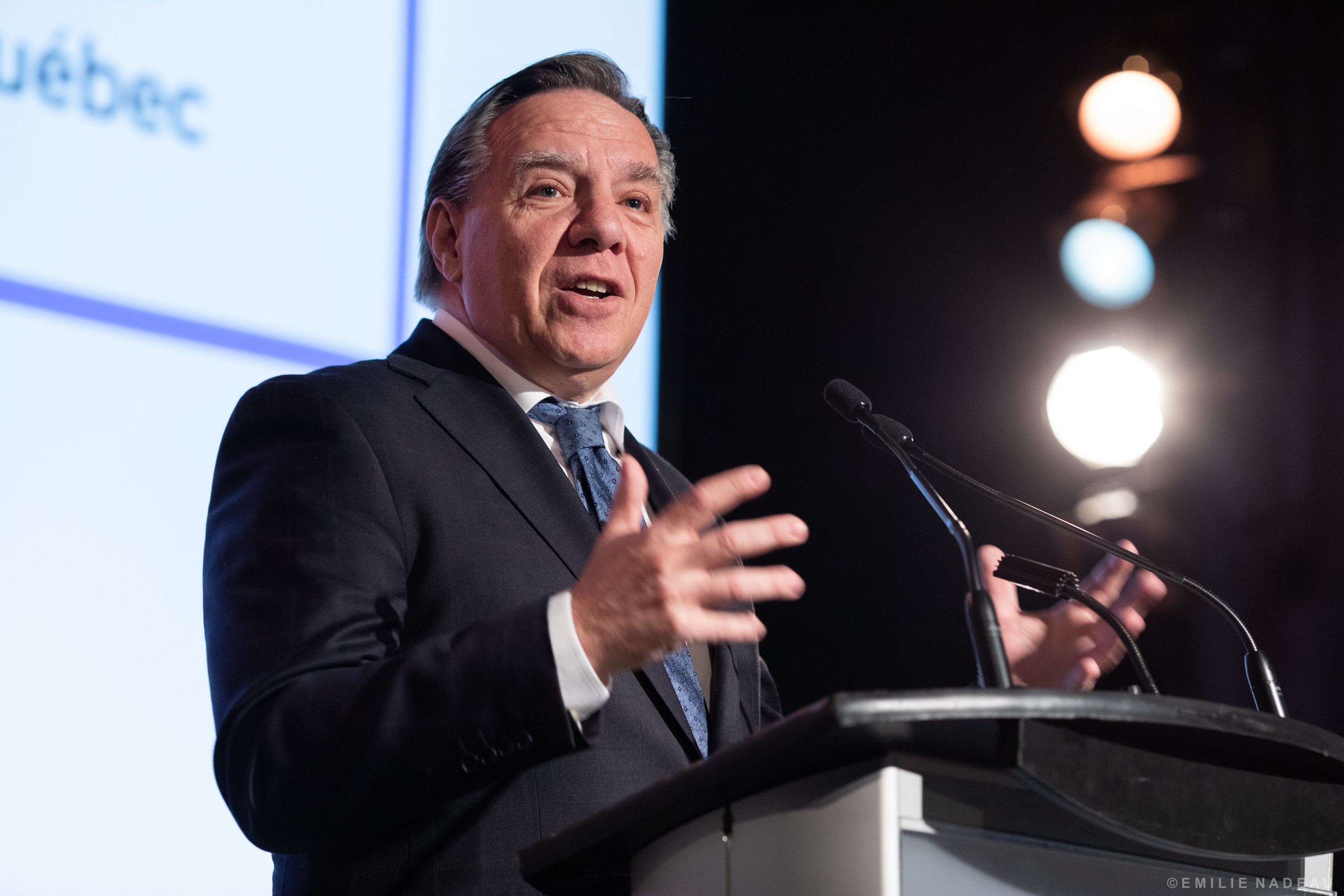Canada News
Quebec says number of new COVID 19 cases appears to be stabilizing

Premier Francois Legault said there were 2,840 cases of COVID-19 in the province on Sunday, which is an increase of 342 from the day before. (File Photo by Emilie Nadeau via @francoislegault/Twitter)
Quebec’s premier and public health director struck a cautiously optimistic tone on Sunday, saying aggressive physical distancing measures appear to be working to slow the spread of COVID-19.
Horacio Arruda, the province’s director of public health, said the number of cases announced in recent days falls below what was originally projected.
“Each day now, we have less than we thought we would have,” he said, while declining to share precise numbers.
Arruda repeatedly smacked the back of his hand to demonstrate the concept of “flattening the curve” of new infections.
“The speed with which we’re increasing is spreading out, and the more we do that, the longer we’ll take to reach the plateau,” he said.
He explained that slowing down the rate of transmission might mean that the province will take longer to reach a peak, but it would help ensure hospitals stay below capacity.
“I don’t want to choose who I’m going to keep on a respirator because I don’t have enough,” he said.
Premier Francois Legault said there were 2,840 cases of COVID-19 in the province on Sunday, which is an increase of 342 from the day before.
He noted that the percentage increase was smaller than in recent days, and the number of people hospitalized, at 192, remains far below the capacity of 6,000.
The number of deaths remained unchanged at 22.
“We can see the daily increase in confirmed cases seems to be stabilizing,” he said. “Public health authorities tell us our efforts are paying off, so don’t give up.”
However, he said the numbers could rise again, and he urged Quebecers to remain positive.
Arruda and Legault noted that the worst-hit regions appeared to be Estrie and Montreal, and they said health authorities would increasingly need to take a regional approach to fighting COVID-19.
Montreal reported 1,361 cases as of Saturday night, an increase of 146 from the day before.
Dr. Mylene Drouin, the regional director of public health, said that included 82 health-care workers and outbreaks in over 20 health-care facilities, affecting some 240 people.
She said the most heavily-affected neighbourhoods are those surrounding downtown, but stressed that cases were rising all over the island.
“When we look at this data we see that, yes, there are more cases in the central neighbourhoods, but community transmission is sustained, and extends to the whole of Montreal,” she said, while noting there was “a certain stability” in the number of new cases in recent days.
She said the city was asking Montreal police to begin ticketing citizens who aren’t respecting orders to isolate or avoid gatherings, or those who test positive and who aren’t co-operating with health authorities.
Mayor Valerie Plante, meanwhile, said the city had decided to extend the state of emergency it first declared on Friday, partly in response to a need to quickly provide additional support to the city’s homeless population.
Plante and Drouin said they didn’t rule out tougher measures, such as limiting movement off the island or between neighbourhoods, if the situation worsens, but stressed that further restricting personal freedoms would be a last resort.
On Saturday, the province announced that eight regions of the province would be off limits with police checkpoints on major roads in and out of those areas as of that afternoon, with travel only allowed for essential purposes.
–By Morgan Lowrie in Montreal





















